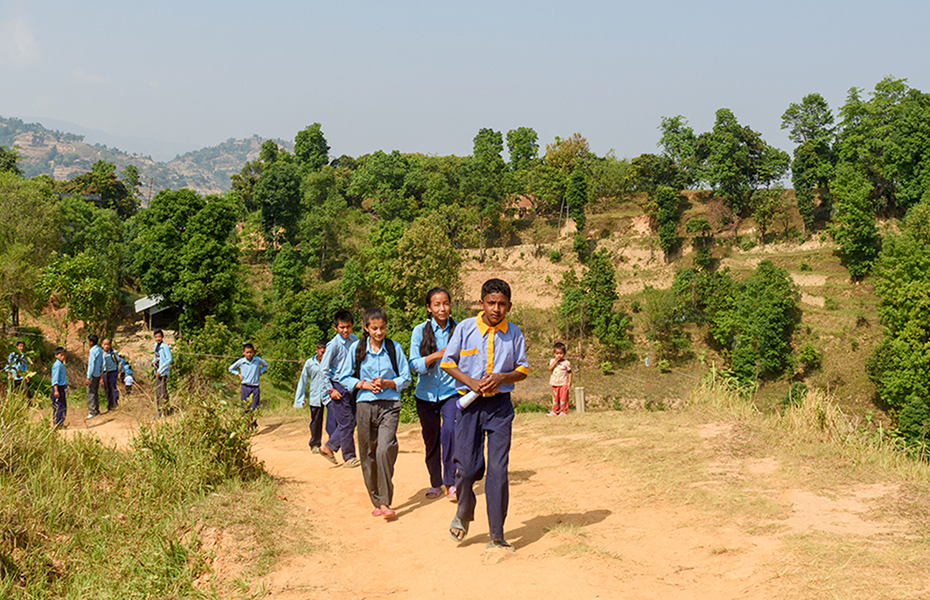
Education is not a privilege; it is a basic human right recognized by the Universal Declaration of Human Rights. Children are viewed as the main beneficiaries of this right and our aim is to provide education to those for whom it is currently denied.
Literacy is essential for the development of well-being and a strong sense of citizenship amongst children. Therefore, it is important to provide every child with the opportunity to gain knowledge, transferable skills, and the ability to become self-sufficient in the future. By elevating students, we will also uplift and produce a progressive nation. Yet despite the general awareness of the benefits education brings to children and economic growth, there is a persistent lack of access to the education system across the world. Many children in Nepal are not enrolled in schools, even more, tend to drop out early or engage in irregular attendance. The biggest obstacle faced by Nepal is to maintain a regular attendance rate, there is a high level of dropouts in young kids who generally leave school to earn an income to help sustain their family work or there are unexplained irregular attendance patterns in schools.
Poverty is a deep-rooted and complex issue with around 31% of the population living under the poverty line in 2007. This is a major reason for the deprivation of education for many of the people in Nepal. A low-class family living under the poverty line, struggles to provide the required registration fees, appropriate stationery, books, uniforms, and other compulsory materials. Furthermore, they are unable to provide lunch money, meaning that many students attend school on an empty stomach. Due to this, many families make the difficult decision of enrolling their children into income-generating activities rather than schooling.
Quality of education provided is another vital issue. Whilst assessing the quality of education we tend to look at the number of teachers appointed, their qualification and performance. We also look at how the children are performing through regular assessments and innovative ways of teaching.
However, in rural Nepal, they are facing some serious issues in providing these basic prerequisites for quality education – there is a real shortage in the supply of sufficiently trained teachers and classroom space. In some cases, 2 to 3 different classes are forced to sit together and study in the same room because of a lack of space and teachers. Therefore, MAMI’s main goal is recruiting qualified teachers and equipping them with modern teaching techniques that are engaging and effective.
Nepal has been undertaking various literacy programs since 1956, however it has been unsuccessful in providing literacy education to all. The rate of literacy has significantly decreased due to non-enrolment and unprecedented dropout rates of disadvantaged children and girls in primary schools. In 2015, research conducted by Panthhe and McCutcheon concluded that the growth of literacy does not even correspond to the growth of the population in the country. The population growth rate is estimated at 2.25% per year, whereas the literacy rate grows only at the rate of 1% per year.
MAMI’s primary purpose is to bridge this gap in the rural and most vulnerable communities of Nepal. The mission is to provide quality learning opportunities which will prepare children in their future endeavors. The argument we present is simple – educational attainment provides the opportunity for higher-income occupations which boost the individual’s standard of living and economic growth of the country.




There is still low access to quality schooling, learning opportunities, and safe environments in rural Nepal. Different projects undertaken by MAMI Foundation can help children and their families to explore different opportunities to promote inclusive and sustainable economic growth by increasing their chance for better employment through education. Your contribution to the MAMI Foundation will support the education and healthcare of rural and underprivileged children (especially girls) in remote areas of Nepal.